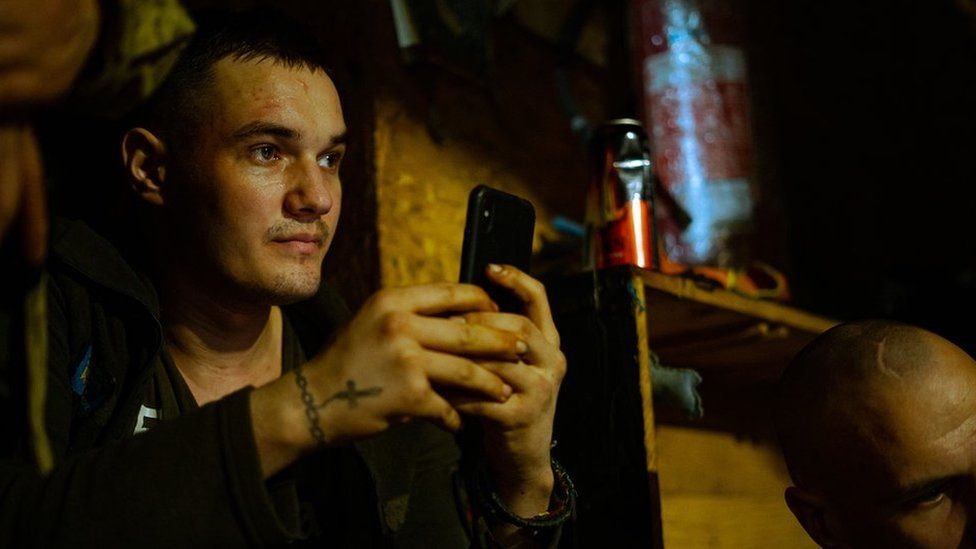-

-
-
Loading

Loading

Last week, Ukrainian forces surrendered the eastern city of Avdiivka, which they had been defending against a Russian attack. This surrender represents a strategic and symbolic victory for Russia, as it strengthens their defense of the regional capital, Donetsk, and opens up possibilities for further offensives against Ukrainian-held territory. Ukrainian commander-in-chief Oleksandr Syrskyi claims that he ordered a retreat from the city to save soldiers' lives. However, evidence of possible war crimes has emerged, as relatives of six soldiers found dead after the city was taken claim they were executed after surrendering. Ukrainian authorities are currently investigating these claims, while Moscow has yet to comment on the matter. According to the testimonies of Ukrainian soldiers who withdrew from Avdiivka, their commanders were unresponsive to their desperate pleas to retreat as they were surrounded by Russian troops. When the order to retreat finally came, it was too late, and the soldiers found themselves completely encircled. A video posted by Russian military bloggers following the capture of Avdiivka appears to show the bodies of Ukrainian soldiers believed to have surrendered after Russian troops captured their position. Relatives have identified Ivan Zhytnyk, Andriy Dubnytsky, and Georgiy Pavlov as three of the soldiers seen in the video. The BBC has interviewed these soldiers and others who were at the military base named "Zenith" in Avdiivka to reconstruct the chaotic events that led to their deaths. The soldiers at Zenith had been fighting desperately for weeks to hold their position and had repeatedly requested to be pulled out, fearing that a full encirclement was imminent. However, their requests were refused, and they were told to wait. On February 13, they were finally ordered to withdraw, but it was too late. Ivan Zhytnyk messaged his brother-in-law that they were told to retreat, but there were Russians behind them, and he didn't know what to do. Ivan and nine other soldiers were tasked with attacking Russian positions to create a safe passage for the rest, but they were forced to turn back due to Russian artillery. Only three of them managed to return to the base. Ivan, who was badly injured, collapsed in a field before reaching the base. Comrades from the Zenith base tried to rescue him, but they were attacked by kamikaze drones. Eventually, they made it back to Zenith, where they were promised evacuation but it never arrived. Ivan called his commander to ask about the evacuation, but he was told to get out on their own as sending a rescue team was too risky. The soldiers left the base at night, under relentless enemy fire, but those who were wounded couldn't walk and were left behind at Zenith. The Russian side reportedly agreed to evacuate the wounded and later exchange them, but Ivan and others at Zenith didn't believe the Russians would keep the wounded alive. Relatives received text messages from the soldiers indicating that they were alone and in danger. Video evidence suggests that the soldiers were taken prisoner by Russian forces. Ivan's sister blames the military leadership for allowing this to happen. On February 17, Ukrainian forces ordered a full withdrawal from Avdiivka to preserve the lives of soldiers, but it was too late for many, including the six soldiers who had surrendered. The following day, a video showing their dead bodies was posted on social media by Russian sources. Relatives of the soldiers are convinced that they were killed by the Russians, and they hold the military leadership responsible for their deaths.